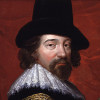“ A man that hath no virtue in himself, ever envieth virtue in others. For men's minds, will either feed upon their own good, or upon others' evil; and who wanteth the one, will prey upon the other; and whoso is out of hope, to attain to another's virtue, will seek to come at even hand, by depressing another's fortune. A man that is busy, and inquisitive, is commonly envious. ”
Francis Bacon, The Essays of Francis Bacon (1597). copy citation
| Author | Francis Bacon |
|---|---|
| Source | The Essays of Francis Bacon |
| Topic | evil virtue |
| Date | 1597 |
| Language | English |
| Reference | |
| Note | |
| Weblink | http://www.gutenberg.org/files/575/575-h/575-h.htm |
Context
“(though not unworthy to be thought on, in fit place) , we will handle, what persons are apt to envy others; what persons are most subject to be envied themselves; and what is the difference between public and private envy.
A man that hath no virtue in himself, ever envieth virtue in others. For men's minds, will either feed upon their own good, or upon others' evil; and who wanteth the one, will prey upon the other; and whoso is out of hope, to attain to another's virtue, will seek to come at even hand, by depressing another's fortune.
A man that is busy, and inquisitive, is commonly envious. For to know much of other men's matters, cannot be because all that ado may concern his own estate; therefore it must needs be, that he taketh a kind of play-pleasure, in looking upon the fortunes of others.”
source



